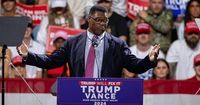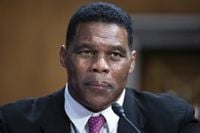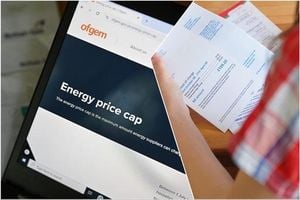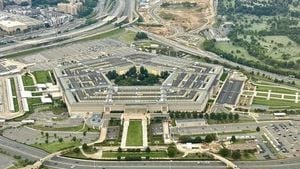For the first time in nearly 15 years, the United States has a new ambassador to the Bahamas. On October 7, 2025, the Senate confirmed Herschel Walker, the former NFL star and 2022 Georgia Republican Senate candidate, to the role in a 51–47 vote that fell squarely along party lines. The confirmation, which filled a post left vacant since 2011, capped a dramatic moment on Capitol Hill that saw more than 100 nominees approved in a single, expedited batch—an outcome made possible by a controversial change to Senate rules.
Walker’s confirmation is notable not just for ending a lengthy diplomatic absence, but also for the storm of controversy and political maneuvering that swirled around both his nomination and the broader confirmation process. According to Reuters, the Senate Republicans invoked the so-called “nuclear option,” altering filibuster rules so that nominees could be confirmed with a simple majority of 51 votes instead of the traditional 60. The move allowed for mass confirmations, including Walker’s and other high-profile appointments such as Sergio Gor as ambassador to India and Brandon Judd to Chile.
The Bahamas, situated less than 60 miles from the coast of Florida, has long had a close relationship with the U.S., but the ambassador’s seat had remained unfilled since Nicole Avant left the post in 2011. President Barack Obama’s subsequent nominee, Cassandra Butts, tragically died in 2016 before her confirmation, leaving the position open for nearly a decade and a half. During this period, the absence of a U.S. envoy became increasingly conspicuous as China deepened its economic and political ties with the island nation.
“He will be warmly welcomed by Bahamians who are widely known for their hospitality,” Wendall Jones, the Bahamian ambassador to the U.S., told Reuters. Jones added that Walker would be “well-positioned to assist our government in communicating on many issues of mutual concern.” The sentiment was echoed by a U.S. State Department spokesperson, who told USA Today that Walker “will be a true champion of the America First foreign policy agenda” and that his appointment would help advance U.S. interests in the Bahamas.
Walker, 63, is no stranger to the public eye. A Heisman Trophy-winning running back from Georgia, he was recruited by President Donald Trump to run for the U.S. Senate in 2022. That campaign, however, was marred by controversy. As reported by The Washington Post and NBC News, Walker’s run was dogged by allegations that he pressured two women into having abortions, despite his public anti-abortion stance. His ex-wife accused him of threatening her with a gun, and investigative reporting by The Daily Beast revealed undisclosed children from relationships not publicly acknowledged by Walker. He also faced scrutiny for alleged financial troubles and campaign mismanagement. Walker admitted to writing a $700 check to a former partner but claimed he did not recall the purpose of the payment.
Despite—or perhaps because of—these controversies, Trump stood by Walker, describing him as “an Ambassador to our Nation’s youth, our men and women in the military, and athletes at home and abroad.” Trump nominated Walker for the Bahamas ambassadorship in December 2024, and his loyalty to the former president was a recurring theme throughout the confirmation process.
The manner in which Walker and other nominees were confirmed drew sharp criticism from political observers. Norm Ornstein, a political scientist, expressed his dismay on social media, calling the process “entirely unprecedented” and a sign that the Republican Party had become “a full-blown cult.” Ornstein continued, “No vetting, no examination of whether the people they are confirming are fit for the jobs. It is beyond pathetic. Simple lackeys to their Dear Leader. None adhering to the oaths they took. True believers in vicious autocracy? Moral cowards. It doesn’t really matter. Appalling.” According to Raw Story, the vetting of nominees was “minimal at best.”
Walker’s appointment comes at a time of heightened U.S. concern over China’s growing footprint in the Bahamas. At his September confirmation hearing, Walker sounded the alarm about Beijing’s investments, stating, “Having an ambassador in place is more important than ever. China is aggressively projecting power and malign influence. It built a nearly $3 billion deepwater port and has made other investments in sensitive sectors that could have implications for U.S. national security.” According to Reuters, China has invested not only in major Bahamian tourism hubs and a transshipment port but also in the national stadium and a new hospital in Nassau, the latter funded by a loan from the Chinese Export-Import Bank. Chinese officials, for their part, have denied any ulterior motives, calling China “a trustworthy friend and long-term cooperating partner.”
The confirmation of Walker and more than 100 other nominees came in the midst of a government shutdown, further highlighting the political stakes and urgency surrounding the appointments. According to WRDW/WAGT, Georgia Democrats Jon Ossoff and Raphael Warnock—who defeated Walker in the 2022 Senate race by a narrow 51% to 49% margin—voted against his nomination. Walker’s alma mater, the University of Georgia, recently celebrated his graduation, and he remains a legendary figure in the state’s sports history.
Walker’s transition from football stardom to the diplomatic stage is certainly unconventional, and his tenure as ambassador will be closely watched both at home and abroad. Dr. Robert Evan Ellis, a Latin America expert at the U.S. Army War College, told Reuters that China’s growing economic and security presence in the Bahamas “warrants greater attention from Washington.” Ellis added that Walker’s arrival “would signal Trump’s interest in the region, which could ultimately benefit U.S. relations.”
As Herschel Walker prepares to take up his post in Nassau, the U.S. is signaling a renewed commitment to its Caribbean neighbor at a time of shifting geopolitical tides. Whether Walker’s unique background and controversial political history will serve as assets or liabilities remains to be seen, but for now, the Bahamas once again has a U.S. ambassador—and the world is watching.





